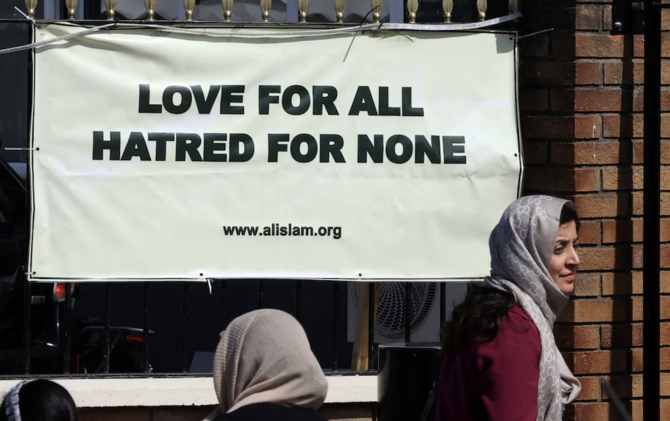LONDON: Senior police officials have issued a warning that the British government’s plans to cut funding for Tell Mama, the UK’s leading anti-Muslim hate-monitoring service, could severely impact efforts to tackle Islamophobia.
The charity, which has been entirely funded by the Ministry of Housing, Communities and Local Government since its establishment in 2015, faces imminent closure unless the decision is reversed, The Times reported on Thursday.
Earlier this year, Tell Mama recorded the highest number of anti-Muslim hate incidents in its history.
The National Police Chiefs’ Council has urged the government to reconsider, stressing the charity’s “invaluable” role in providing police forces with critical data.
The NPCC, which has a data-sharing agreement with Tell Mama, says the organization’s work has been instrumental in preventing hate-fueled social disorder.
“This research lays bare the hostility and abuse faced by many in our Muslim communities,” said Mark Hobrough, NPCC lead for hate crime and chief constable of Gwent police.
“Our longstanding and trusted relationships with key partners like Tell Mama have been invaluable amidst these events, and I am confident that the strength of our partnerships will continue to help us reassure communities and bring hate crime offenders to justice.
“We all have a right to live our lives free from targeted abuse, and I would urge anyone who suffers anti-Muslim hate crime to report it to the police or to Tell Mama.”
Experts in policing and hate crime have echoed concerns about the consequences of defunding Tell Mama. Mike Ainsworth, chair of the National Independent Advisory Group on Hate Crime for Policing and Criminal Justice, warned against downplaying the seriousness of Islamophobia in Britain.
“Tell Mama have provided the clearest picture we have of the extent of anti-Muslim hate crime and prejudice in the country,” he said. “It’s an uncomfortable picture to look at, but it is essential that we do not look away.
“The figures are stark, but they help us understand the scale of the problem and what we must do to move forward. Tell Mama have provided the foundations that government departments and the legal justice system must build on to restore trust and confidence.”
Tell Mama’s founder, Fiyaz Mughal, expressed frustration over what he saw as a failure by British ministers to appreciate the organization’s vital role in tackling hate crime.
“Tell Mama has worked tirelessly with many police forces in the United Kingdom,” he said. “We have met with officers from every corner of the country and met committed, dedicated, and true professionals who have tried to get victims of anti-Muslim hate access to justice.
“They are the unsung heroes with the victims themselves, and some people, including a handful of politicians, reduce our work to numbers and figures and disrespect the whole picture of the range of activities, statutory agencies, and the good men and women in law enforcement in our country that we work with on a daily basis.”
Tell Mama has yet to receive £500,000 from last year’s government grant. While discussions about a potential six-month extension to its funding are ongoing, there is no guarantee the charity will be able to continue its operations.
Despite the widespread criticism, the government has maintained that it remains committed to tackling religious hatred.
An Ministry of Housing, Communities and Local Government spokesperson said: “Religious and racial hatred has absolutely no place in our society, and we will not tolerate Islamophobia in any form.
“That’s why we will tackle religiously motivated hate crime and provide a comprehensive service to monitor Anti-Muslim Hatred, so we can deliver on the government’s Plan for Change mission for safer streets.
“We will soon be opening a call for grant applications to ensure we can meet the challenges communities face today and continue to provide support for victims, with further detail to be set out in due course.”




























